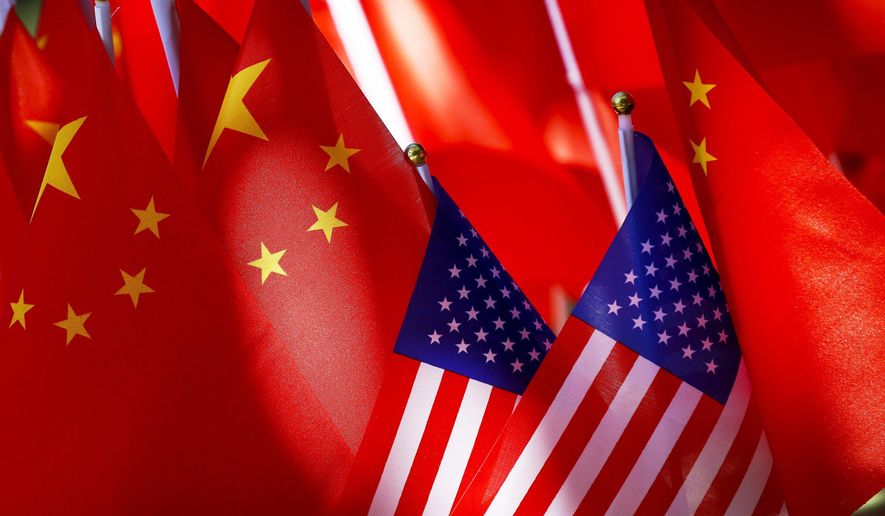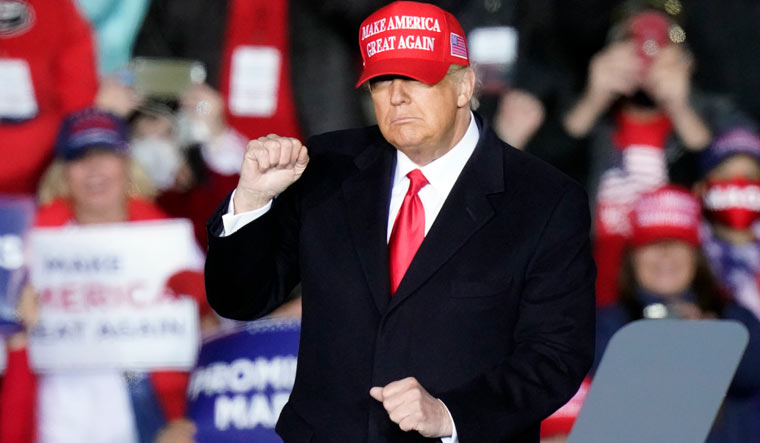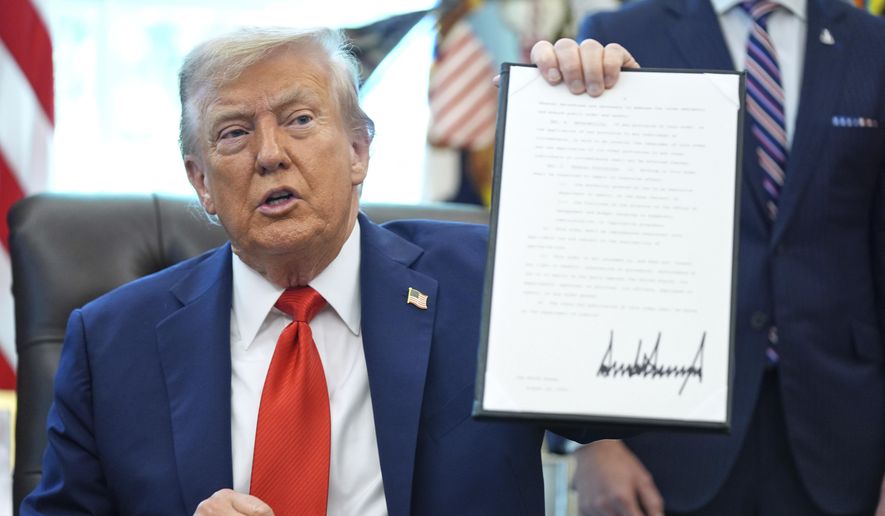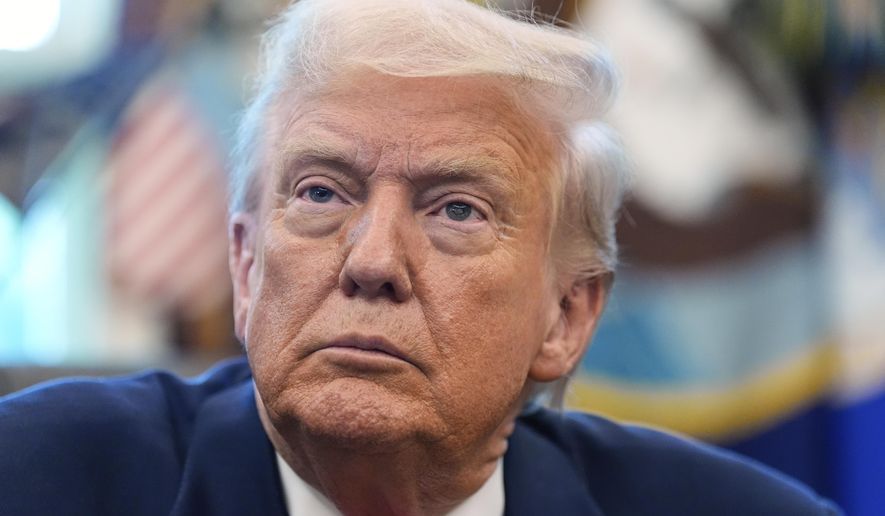Counterintelligence Agency Urges Greater Effort to Counter Chinese, Other Foreign Agents

Bill Gertz | September 2, 2025
(The Washington Times) — Chinese intelligence services are recruiting students, stealing American research and engaging in harassment of dissidents at U.S. universities, says a new report by the National Counterintelligence and Security Center.
Other foreign spies are targeting universities with similar operations, but the Chinese threat is the most significant, the center said in a 40-page report, “Safeguarding Academia: Protecting Fundamental Research, Intellectual Property, Critical Technologies and the U.S. Research Ecosystem.”
“No nation has targeted Western research, science and technology as aggressively as China,” the report said. “The Chinese Communist Party (CCP) and Chinese intelligence services represent the broadest, most active and persistent espionage threat to the U.S.”
Russia and other foreign adversaries are engaged in technology theft from American schools to advance their programs but do so less aggressively.
Chinese spies also pose the most significant threat to U.S. technology competitiveness by seeking “all manner of critical and enabling U.S. technologies,” the report said.
Specific sectors include electronics, software, communications equipment and other materials aimed at advancing Chinese economic and military goals.
The Chinese Ministry of State Security, the leading civilian intelligence agency, is working to recruit U.S. experts in critical and emerging technology areas, including artificial intelligence and machine learning, quantum technologies, semiconductors, optics, hypersonics and energy systems.
China also is using its forays into academics to exploit research in genetics, medicine and AI to repress vulnerable populations and target specific people, the report said.
One example cited in the report was an unidentified professor at a U.S. university who shared genetic data with Chinese researchers. The Chinese Ministry of Public Security, the national political police agency, used the data to profile and surveil minority Uyghurs in western China.
The State Department has declared Chinese repression of the Uyghurs to be genocide.
“The data was used to build a comprehensive DNA database that enabled the CCP to identify and track Uighur dissidents, sparking widespread criticism from human rights groups,” the report said. “This case underscores the need for researchers, institutions and governments to work together to establish robust safeguards and due diligence practices to prevent the misuse of research and protect against foreign malign influence.”
The root of the threat does not emanate from the Chinese people or Chinese Americans, who are often victimized by China. The main problem is the Chinese government, the CCP and Chinese intelligence services, the report said.
Methods used to obtain U.S. research include foreign talent recruitment programs, state-sponsored espionage, coercion of information from students and faculty, and technical/cyber techniques.
The report urges universities and research institutes to learn the signs of foreign intelligence activity and better protect their research.
Additionally, the Chinese and other repressive foreign regimes are using proxies to target foreign students on U.S. campuses who speak out about abuses in their countries, a practice called transnational repression.
“These students are targeted for merely exercising their fundamental rights to free speech in the United States,” the report said.
Another case study in the report involves a Chinese student in the United States sentenced to nine months in prison last year for stalking and threatening a fellow Chinese student who posted campus flyers urging democracy in China.
The criminal had threatened to chop off the fellow student’s hands for posting the flyers and to alert Chinese security services so they could target her family in China.
Despite the disclosure of student harassment, President Trump said he wants to allow 600,000 Chinese students to attend American universities. National security experts said Chinese student visas should be restricted to prevent spying and technology theft.
Chinese intelligence agencies are also working to recruit students, professors and recent graduates who they hope will land jobs in the U.S. government or will report on people of interest.
China and other foreign spy agencies also infiltrate universities with intelligence agents “who then pose as students to collect information on classmates and research,” the report said.
“When successful, foreign intelligence recruitment efforts of university students and staff can threaten U.S. national security and cause lasting harm to the lives of those involved,” the report said. “Helping foreign intelligence services, wittingly or unwittingly, can harm U.S. national security and potentially violate U.S. law.”
Spy recruitment cases include China’s agent
Ji Chaoqun, a student in China, was recruited by the Ministry of State Security and sent to a U.S. university. The MSS tasked him with gathering information on U.S. aerospace engineers, including some at defense contractors, for potential recruitment.
After graduating, Ji joined the Army and planned to obtain U.S. citizenship to apply for work at the CIA or FBI. However, Ji was arrested and sentenced in 2023 to eight years in prison for operating as an unregistered foreign agent.
State Department employee and former Ambassador to Bolivia Victor Rocha was sentenced to 15 years in prison in April 2024 for working as a Cuban agent for more than four decades. He was recruited by Cuba after graduating from Yale University and before graduate school.
From 2018 to 2020, Russia planted an intelligence agent at Johns Hopkins University who posed as a Brazilian graduate student and spied on classmates who later obtained U.S. government jobs. A few years earlier, Russia’s intelligence service placed an agent posing as a graduate student at Columbia University for the same purpose.
The Chinese also are engaged in what the report called “talent poaching” from universities.
A South Korean consulting firm recently broadcast a talent search for U.S. semiconductor experts to join unspecified clients and offered more than $300 hourly compensation.
“Subsequent review revealed that the consulting firm was a front company for China’s People’s Liberation Army,” the report said.
In another case, a Chinese talent recruitment center solicited an advanced manufacturing materials expert at a U.S. government laboratory.
The Chinese offered the expert subsidized housing in China, free education for family members and dedicated research funding of $550,000 annually with the goal of advancing China’s national technology development strategies.
U.S. officials have said China’s Thousand Talents recruitment program has targeted numerous American experts and resulted in multiple Justice Department prosecutions over the past decade.
The report said talent recruitment by China and other adversaries can lead to violations of U.S. export control law, economic espionage, theft of trade secrets and grant and tax fraud. Prosecutors used these charges to pursue those linked to Beijing’s talent program.
Among the highest-profile prosecutions involved Harvard professor Charles Lieber, who was convicted in December 2021 of lying to authorities about his role in the Thousand Talents Program and the Wuhan University of Technology, and failing to report income from the Chinese.
Before his arrest, Lieber served as the principal investigator of the Lieber Research Group at Harvard. From 2008 to 2019, Harvard conducted more than $15 million in U.S. government-sponsored research, including for the Pentagon and the National Institutes of Health.
“Unbeknownst to his employer, Harvard University, Lieber became a ‘Strategic Scientist’ at WUT and, later, a contractual participant in China’s Thousand Talents Plan from at least 2012 through 2015,” the report said.
“China’s Thousand Talents Plan was one of the most prominent Chinese talent recruitment plans designed to attract, recruit and cultivate high-level scientific talent in furtherance of China’s scientific development, economic prosperity and national security,” the report said.
Lieber was convicted and fined. He joined China’s Tsinghua University in April.
Collaboration with China by three U.S. universities led to six-figure fines for taking money from foreign governments, including one university that paid $500,000 for taking money from Huawei Technologies Co., at the same time a researcher was seeking a taxpayer-funded grant from the National Science Foundation, the report said.
The specific universities were not identified.
“Although information sought by foreign adversaries may seem insignificant, the loss of such data can have negative and potentially costly impacts on researchers, academic institutions, and the U.S. innovation ecosystem,” the report said.
“The impacts can also manifest themselves in a changing dynamic in the strategic power competition that has both national and economic security impacts for the U.S. — and ultimately inhibits our research and innovation ecosystem.”
A report that surfaced in May highlighted China’s theft of a U.S. nuclear breakthrough that can allow China to refuel nuclear reactors without shutting down, a step toward limitless clean energy.
“This step positioned China to take the global lead in clean energy, largely driven by their ability to exploit publicly available U.S. research,” the report said.
The report was produced with the help of the FBI, Air Force Office of Special Investigations, Department of Education, Defense Counterintelligence and Security Agency, and Army and Navy security agencies.




















